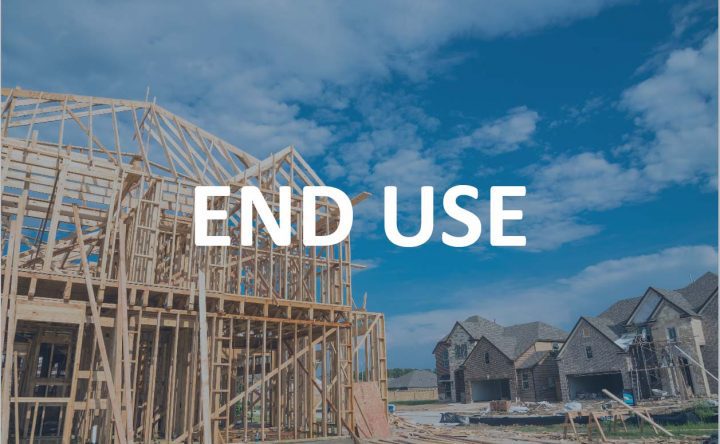According to the new monthly Mortgage Bankers Association’s (MBA) Loan Monitoring Survey (LMS), the total number of loans now in forbearance decreased by 25 basis points from 1.67% of servicers’ portfolio volume in the prior month to 1.41% as of 31st December 2021. The MBA estimates that 705,000 homeowners remain in forbearance plans.
News in end use
Leading Economic Index® for U.S. Increases in December
The Conference Board, a non-partisan, not-for-profit think tank founded in 1916, released today (1-21-22) the Leading Economic Index® (LEI) for the U.S. in December. According to the report, the LEI for the U.S. increased by 0.8% in December to 120.8 (2016 = 100), following a 0.7% increase in November, a 0.7% increase in October, and a 0.3% increase in September. The Conference Board Coincident Economic Index® (CEI) for the U.S. increased by 0.2% in December.
New Home Mortgage Applications Drop Both Month-Over-Month and Year-Over-Year in December
According to the Mortgage Bankers Association’s (MBA) December Builder Application Survey (BAS), mortgage applications for new home purchases declined -7.1% year-over-year. Compared to November 2021, applications decreased by 5%. This change does not include any adjustments typical seasonal patterns. The BAS tracks application volume from mortgage subsidiaries of home builders across the country.
Canadian Unemployment Dips in November
Statistics Canada (StatsCan) reported on Thursday (1-20-22) that in the week ending November 13, 2021, approximately 692,000 Canadians were receiving regular Employment Insurance (EI). This is down 50,000 (-6.7%) from October. There were -1.0 million fewer regular EI beneficiaries in November than in May 2021, when the number of regular EI beneficiaries reached its COVID-19 pandemic peak.
Remodeler Sentiment Continued to Improve in Q4 2021
The National Association of Home Builders (NAHB)/Royal Building Products Remodeling Market Index (RMI) reports that residential remodelers’ sentiment in Q4 2021 increased to a reading of 83 — up four points from the Q4 2020 reading of 79. The increase is a sign, the report says, that reflects the positive sentiment of remodelers for projects of all sizes.
Existing Home Sales Decline Month-Over-Month and Year-Over-Year in December
The National Association of Realtors® (NAR) reported on Thursday (1-20-22) that total existing home sales, which are completed transactions for single-family homes, townhomes, condominiums, and co-ops, declined -4.6% in December from November. Sales were at a seasonally adjusted rate at 6.18 million homes. Year-over-year sales are down -7.1% (6.65 million December 2020).
Mortgage Rates Climb Higher in Week Ending January 20, 2022 — The Fourth Week in a Row
Freddie Mac has released its Primary Mortgage Market Survey (PMMS) for the week ending January 20, 2022. The PMMS reports that the 30-year fixed-rate mortgage averaged 3.56% with an average 0.7 point, up from last week when it averaged 3.45%. A year ago at this time, the 30-year FRM averaged 2.77%.
Weekly Jobless Claims Increase for Second Consecutive Week During the Week Ending January 15, 2022
The U.S. Department of Labor is reporting that an additional 286,000 Americans made their initial filing for unemployment benefits during the week ending on Saturday, January 15, 2022. This is an increase of 55,000 from the previous week’s unrevised level. The 4-week moving average was 231,000 — an increase of 20,000 from the previous week’s revised average.
Housing Starts and Building Permits Increase in December, but Building Completions Fall Short
The U.S. Census Bureau reported on Wednesday (1-19-22) that privately‐owned housing starts in December were at a seasonally adjusted annual rate (SAAR) of 1,702,000. This is 1.4% above the revised November estimate of 1,678,000 and is 2.5% above the December 2020 rate of 1,661,000. Single-family housing starts in December were at a rate of 1,172,000. This is -2.3% below the revised November figure of 1,199,000.
Canadian Consumer Price Index Increases 3.4% on an Annual Basis in 2021
Statistics Canada (StatsCan) reported today (1-19-22) that the Canadian Consumer Price Index (CPI) increased 3.4% on an annual average basis in 2021. This is the fastest pace since 1991 (+5.6%) and it follows a 0.7% increase in 2020. Excluding energy, the annual average CPI rose 2.4% in 2021 — a faster pace than the 1.3% recorded in 2020 and 2.3% in 2019. While annual average growth was 3.4% in 2021, price growth differed between the first half and second half of the year.



